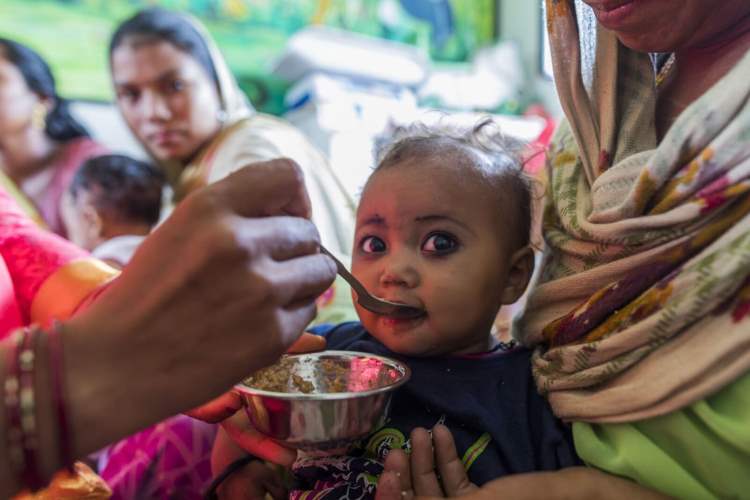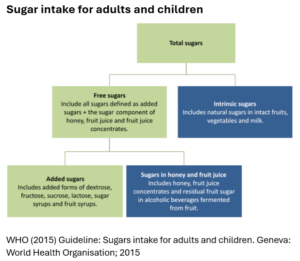
Sugary infant food and child supplements are a significant public health concern that requires immediate action. The current situation is alarming, as the lack of proper regulation and data, combined with governmental and corporate negligence, continues to endanger the health of children. The supplementary food industry, along with certain governments, must be held accountable for producing and distributing unhealthy products. Health policymakers, public health advocates, and parents must address this issue on a priority basis.
Introducing high-sugar infant food lays the foundation for a globalised, ultra-processed food culture, supplanting traditional, healthier diets. Influencing the taste preferences of infants can lead to cultural hegemony, where processed food becomes dominant over local food traditions. Antonio Gramsci’s theory of cultural hegemony highlights how political powers shape society’s worldview, and in this case, globalised food culture thrives through education, media, and political inaction. The early introduction of sugar-rich foods provides fertile ground for the acceptance of unhealthy, ultra-processed products later in life.
READ I Looming NPA crisis: Unsecured loans threaten India’s private banks
Commercial determinants of infant health
Commercial and political interests play a detrimental role in shaping the health outcomes of infants and children. The World Health Organisation (WHO) warns that commercial determinants, such as the production, marketing, and distribution of unhealthy products, contribute to obesity, diabetes, and other chronic diseases. Governments and industries must prioritise public health over profit by shifting their focus away from the promotion of unhealthy commodities.
These commercial decisions influence social, physical, and cultural environments. Policy interventions, or the lack thereof, have wide-reaching impacts, from product development to marketing and lobbying efforts. The impact of these decisions is evident in the promotion of unhealthy products like sugary foods, tobacco, and alcohol.
Impact of excessive sugar in infant food
Excessive sugar consumption is a leading contributor to non-communicable diseases (NCDs) such as obesity, heart disease, and diabetes. The WHO reported that NCDs were responsible for 68% of deaths globally in 2012, with many of these deaths occurring in low- and middle-income countries. High sugar intake is a major risk factor for these diseases, and its impact is especially dangerous for infants and young children.

Children in regions with weak regulatory mechanisms, such as Small Island Developing States and low- to middle-income countries, are particularly vulnerable. The introduction of excessive sugar in infant foods worsens existing inequities in health and economic status. These unhealthy commodities not only impact physical health but also disrupt local food cultures.
Traditional diets, health and cultural identity
Traditional, locally available diets are often more nutritious and environmentally sustainable than processed foods. They support local economies, small businesses, and farmers while preserving cultural identity and environmentally friendly practices. By introducing ultra-processed, sugar-laden foods early on, the food industry disrupts this connection between food and cultural heritage.
Preserving local food cultures helps retain valuable knowledge about sustainable agricultural practices, culinary techniques, and the medicinal uses of food. Governments and industries must prioritise the promotion of these traditional food systems rather than undermining them with processed, sugar-filled products.
Global guidelines for reducing sugar in infant foods
Global health guidelines have long recommended reducing sugar intake for infants and young children. The WHO’s Nutrient and Promotion Profile Model (NPPM) provides recommendations for food products for children aged 6 to 36 months, emphasising stricter regulation on sugar content and marketing practices. These recommendations aim to protect the health and development of infants from the negative effects of commercial interests.
The WHO recommends that both adults and children reduce their intake of free sugars to less than 10% of total daily energy intake, with further reductions providing additional health benefits. Free sugars include those added to foods and drinks, as well as sugars naturally present in honey and fruit juices. Countries like Australia have revealed high levels of sugar consumption, especially among adolescents, highlighting the need for stricter regulations.
Child malnutrition and the sugar paradox
Child malnutrition is often cited as a justification for adding sugar to supplementary foods, particularly in low-income countries. However, this practice contradicts the goal of providing balanced, nutritious diets for children. Studies have found that companies like Nestlé add sugar to their baby food products in lower-income countries while withholding it in wealthier nations. This double standard is unjustifiable and highlights the need for regulatory intervention.
In India, programmes like Kerala’s Amrutham Nutrimix seek to combat malnutrition by providing supplementary food to young children. However, the inclusion of excessive sugar in these products raises concerns. The development of such supplements often lacks input from nutrition experts, and the use of sugar exceeds both national and international guidelines. This compromises the health of children and undermines local food cultures.
The inclusion of excessive “added sugar” in infant foods can have long-term health consequences. Poor adherence to dietary guidelines, particularly in government programmes, exacerbates the problem. Government bodies, like the Food Safety and Standards Authority of India (FSSAI), must ensure that dietary guidelines are followed and updated based on current evidence. Public awareness campaigns in local languages are essential to educate consumers about the dangers of high sugar levels in infant food.
Infants and children have the right to access nutritious food, free from excessive sugar. Governments, communities, and families must work together to ensure that every child receives the nutrition they need to thrive. Public health advocates must push for stricter regulations, including mandatory labelling of sugar content, restrictions on the marketing of sugary products, and the enforcement of dietary standards.
Addressing food diversity and reducing the consumption of ultra-processed foods are critical steps in improving child health. By focusing on sustainable, traditional diets and reducing sugar intake, we can ensure a healthier future for all children.
Dr Joe Thomas is Global Public Health Chair at Sustainable Policy Solutions Foundation, a policy think tank based in New Delhi. He is also Professor of Public Health at Institute of Health and Management, Victoria, Australia. Opinions expressed in this article are personal.

